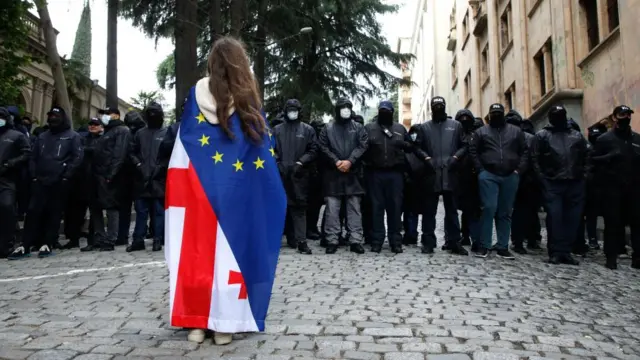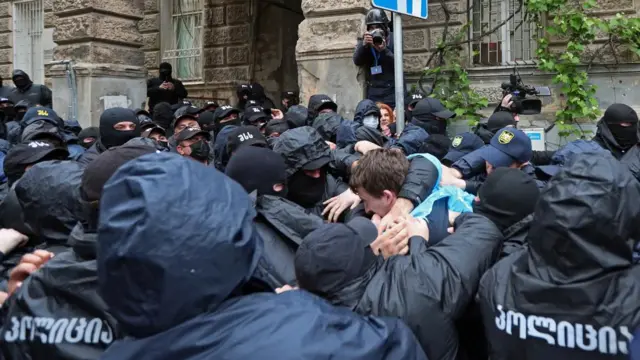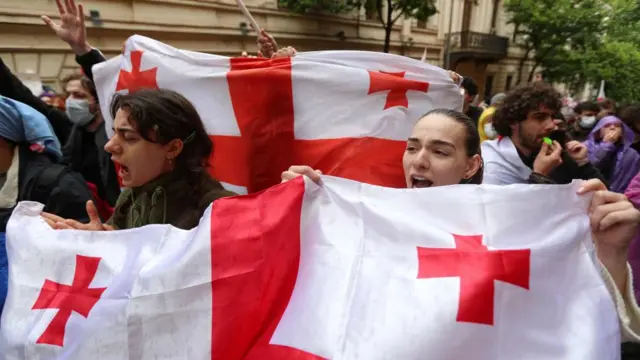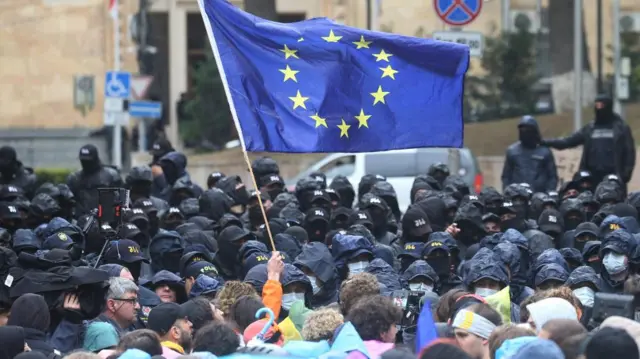In pictures: Protests on the streets of Tbilisipublished at 15:37 BST 14 May 2024
Demonstrations against the new law have been going on all day in Tbilisi.
Here are a selection of photographs from tense scenes around the centre of the Georgian capital.
 Image source, EPA-EFE/REX/Shutterstock
Image source, EPA-EFE/REX/Shutterstock Image source, Reuters
Image source, Reuters Image source, Reuters
Image source, Reuters Image source, Reuters
Image source, Reuters Image source, Reuters
Image source, Reuters